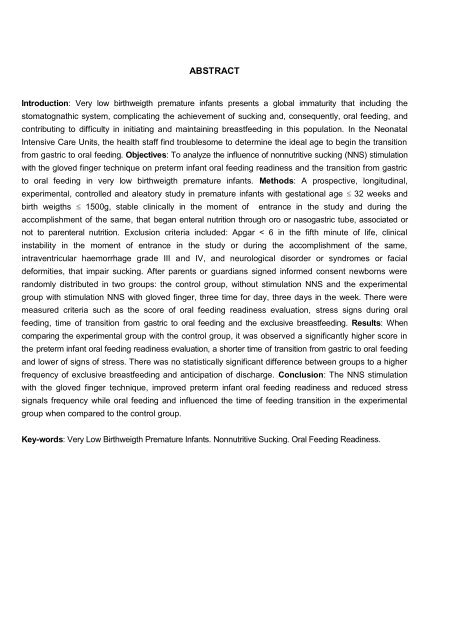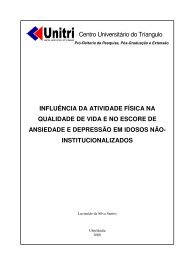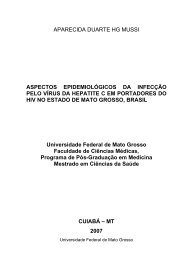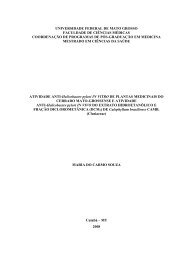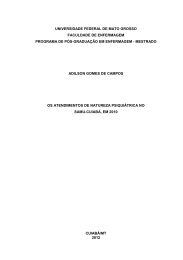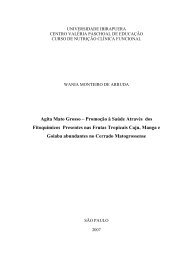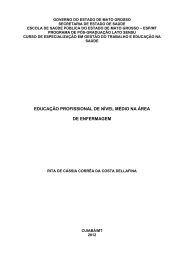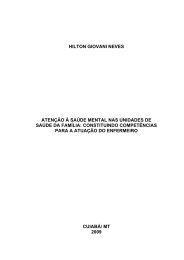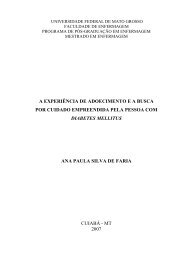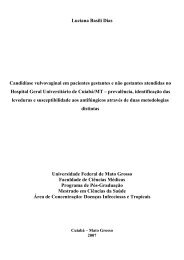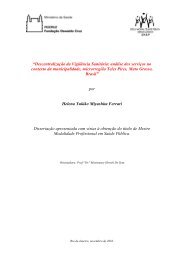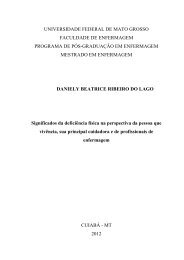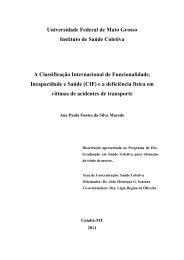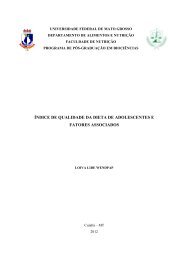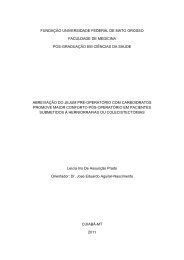universidade federal do paraná claudia maria dias moreira ...
universidade federal do paraná claudia maria dias moreira ...
universidade federal do paraná claudia maria dias moreira ...
You also want an ePaper? Increase the reach of your titles
YUMPU automatically turns print PDFs into web optimized ePapers that Google loves.
ABSTRACT<br />
Introduction: Very low birthweigth premature infants presents a global immaturity that including the<br />
stomatognathic system, complicating the achievement of sucking and, consequently, oral feeding, and<br />
contributing to difficulty in initiating and maintaining breastfeeding in this population. In the Neonatal<br />
Intensive Care Units, the health staff find troublesome to determine the ideal age to begin the transition<br />
from gastric to oral feeding. Objectives: To analyze the influence of nonnutritive sucking (NNS) stimulation<br />
with the gloved finger technique on preterm infant oral feeding readiness and the transition from gastric<br />
to oral feeding in very low birthweigth premature infants. Methods: A prospective, longitudinal,<br />
experimental, controlled and aleatory study in premature infants with gestational age 32 weeks and<br />
birth weigths 1500g, stable clinically in the moment of entrance in the study and during the<br />
accomplishment of the same, that began enteral nutrition through oro or nasogastric tube, associated or<br />
not to parenteral nutrition. Exclusion criteria included: Apgar < 6 in the fifth minute of life, clinical<br />
instability in the moment of entrance in the study or during the accomplishment of the same,<br />
intraventricular haemorrhage grade III and IV, and neurological disorder or syndromes or facial<br />
deformities, that impair sucking. After parents or guardians signed informed consent newborns were<br />
ran<strong>do</strong>mly distributed in two groups: the control group, without stimulation NNS and the experimental<br />
group with stimulation NNS with gloved finger, three time for day, three days in the week. There were<br />
measured criteria such as the score of oral feeding readiness evaluation, stress signs during oral<br />
feeding, time of transition from gastric to oral feeding and the exclusive breastfeeding. Results: When<br />
comparing the experimental group with the control group, it was observed a significantly higher score in<br />
the preterm infant oral feeding readiness evaluation, a shorter time of transition from gastric to oral feeding<br />
and lower of signs of stress. There was no statistically significant difference between groups to a higher<br />
frequency of exclusive breastfeeding and anticipation of discharge. Conclusion: The NNS stimulation<br />
with the gloved finger technique, improved preterm infant oral feeding readiness and reduced stress<br />
signals frequency while oral feeding and influenced the time of feeding transition in the experimental<br />
group when compared to the control group.<br />
Key-words: Very Low Birthweigth Premature Infants. Nonnutritive Sucking. Oral Feeding Readiness.


